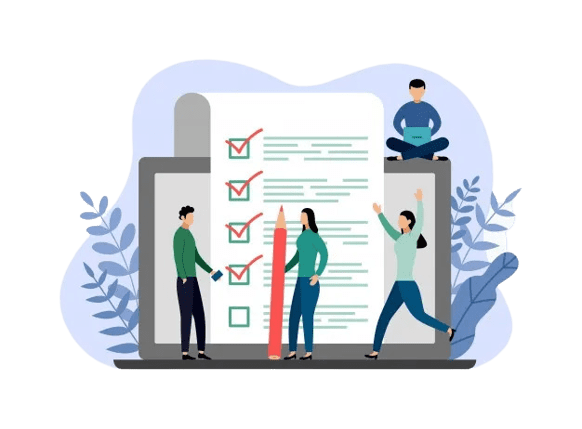Am I Cisgender?
Free Am I Cisgender Assessment

Create a nurturing environment where identities are celebrated, struggles are understood, and healing begins.
What is Am I Cisgender Assessment?
The “Am I Cisgender Assessment” is a self-evaluation tool designed to help individuals determine whether they identify with the gender they were assigned at birth. It typically consists of a series of questions related to one’s gender identity and experiences.
Cisgender individuals identify with the gender they were assigned at birth, while transgender individuals do not. This assessment aids in fostering self-awareness and understanding of one’s gender identity, promoting acceptance and inclusivity for all gender identities.

Who can derive advantages from this assessment of Am I Cisgender?
The “Am I Cisgender Assessment” can be beneficial for various individuals. Firstly, it helps cisgender individuals gain a deeper understanding and validation of their gender identity, fostering self-awareness and confidence.
Secondly, it may be useful for transgender individuals who are questioning their gender identity, as it can serve as a starting point for self-exploration and acceptance.
Additionally, friends, family members, and allies can benefit from taking the assessment to increase their awareness and empathy towards different gender identities, promoting a more inclusive and supportive environment for all.
Am I Cisgender Assessment Accuracy

The accuracy of the “Am I Cisgender Assessment” relies on its design, the expertise of its creators, and the individual’s sincerity in responding to the questions
While it can provide helpful insights into one’s gender identity, it should not be considered an absolute or definitive measure. Gender identity is a complex and personal aspect of a person’s identity, and additional exploration, dialogue with supportive individuals, and professional guidance from qualified experts can offer a more comprehensive understanding of one’s gender identity.
Types of Cisgender Assessment
Self-report questionnaires
Kinsey Scale Test
Klein Sexual Orientation Grid
The Shively-DeCecco Scale
Close Relationships Scale
Sexual Identity Scale
Handling Cisgender Issues
Handling cisgender issues involves addressing the concerns and challenges faced by individuals whose gender identity aligns with the sex they were assigned at birth. It is essential to approach cisgender issues with sensitivity and respect, recognizing that although cisgender individuals may not face the same level of discrimination as transgender or gender non-conforming individuals, they can still encounter various issues related to gender and identity. Here are some key considerations when addressing cisgender issues:
- Understanding cisgender identity: Start by understanding what cisgender means and the experiences that cisgender individuals may have. Recognize that cisgender people, like all individuals, have a diverse range of experiences and perspectives related to gender.
- Avoiding assumptions: Just as it’s essential not to make assumptions about transgender or gender non-conforming individuals, it’s equally important not to assume things about cisgender individuals. Not all cisgender people conform to traditional gender norms or roles, and their experiences may differ widely.
- Challenging gender stereotypes: Advocate for breaking down harmful gender stereotypes and expectations that can impact both cisgender and transgender individuals. Encourage open conversations about gender roles and the freedom to express oneself authentically.
- Promoting inclusivity: Ensure that discussions around gender and gender-related issues are inclusive and welcoming to all individuals, regardless of their gender identity. Avoid reinforcing a binary understanding of gender.
- Recognizing intersectionality: Acknowledge that individuals have multiple identities and that experiences related to gender can be influenced by other factors such as race, ethnicity, religion, sexual orientation, and disability.
- Being an ally: As an ally, support and amplify the voices of transgender and gender non-conforming individuals while also advocating for the rights and understanding of cisgender individuals. Intersectional support and solidarity can lead to a more inclusive society.
- Providing education: Offer education and resources on gender identity, gender expression, and the challenges faced by both cisgender and transgender individuals. This can help foster empathy, understanding, and acceptance.
- Addressing mental health: Recognize that cisgender individuals can also face mental health challenges related to gender identity, body image, or societal expectations. Ensure access to appropriate mental health support and resources.
- Advocating for equality: Work towards creating a society where all individuals, regardless of gender identity, can live without discrimination and have equal opportunities in education, employment, and other areas of life.
- Engaging in open dialogue: Encourage open and respectful discussions about gender-related topics. By fostering understanding and empathy, we can build bridges between different experiences and perspectives.
Remember, the goal is to create a more inclusive and understanding society where everyone can be accepted and valued for who they are.

